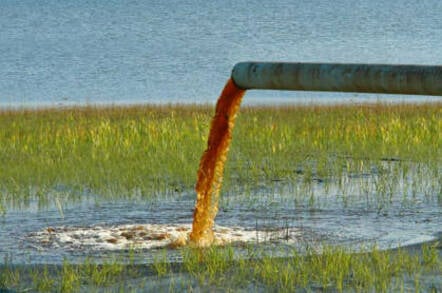Like WI GOP, US EPA further punts clean water leadership
And I have emphasized it was something of a con to argue that these state level changes might not be much to worry about because there were federal agencies and law ready and waiting to serve as public-interest backstops.
Explained further, here:
We all know that Trump's EPA, with the cooperation of Wisconsin's AG Brad Schimel, is wiping out federal environmental clean air and water rules and protections - - which is why we are seeing news stories like this:
Trump taking hatchet to EPA
And Trump had said in the campaign he wanted to crush the agency, leaving "a little bit."
Does that sound like a reliable way to keep Wisconsin's waters and air unpolluted, or to honor the state's constitutional guarantee to accessible, enjoyable and healthy water...Which is why I said more recently:
Federal and Wisconsin pollution enablers are doing a dirty two-step.Well, right on schedule, we have fresh evidence that the feds under Donald Trump's direction are withdrawing even faster from water quality protections and waterway preservation, thus leaving the states, like Walker's 'chamber of commerce mentality' administration freer to carry big business' water:
The Environmental Protection Agency (EPA) is pushing back by two years an Obama administration rule redefining the federal government’s power over small waterways.
The Trump administration is working to repeal the rule, dubbed the Clean Water Rule or Waters of the United States (WOTUS), and formally proposed to do so last year.
The original 2015 rule was designed to clarify federal agencies’ authority and give them the power to regulate small waterways such as ponds, headwaters and wetlands for pollution prevention. It should have taken effect in 2015, but various courts halted it....
Its repeal has been a top priority for President Trump, and he signed an order to repeal it shortly after taking office.
Pruitt is also working to develop a new rule to replace the Obama rule’s definitions once it is fully repealed. The replacement rule would likely give the federal government power over a significantly smaller area.
















